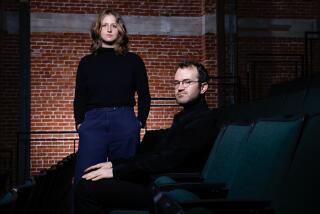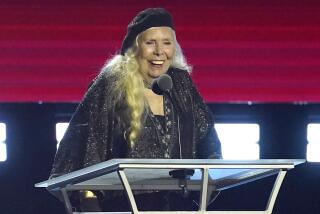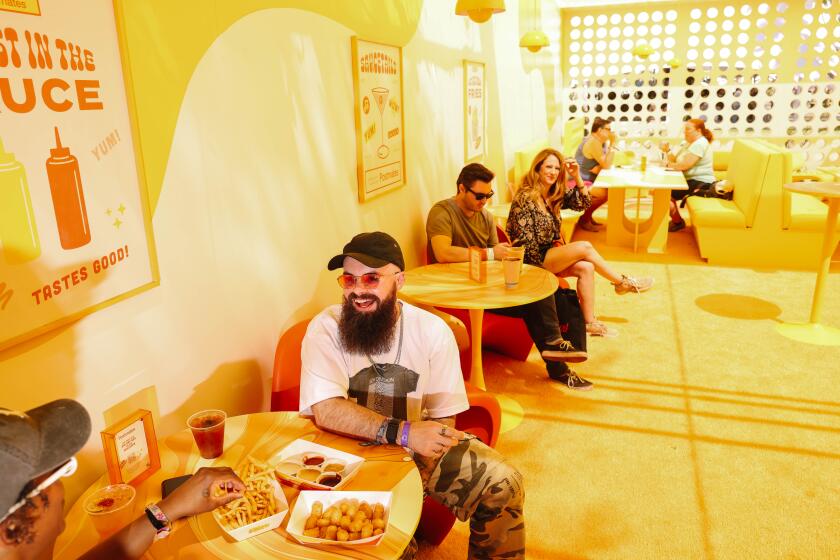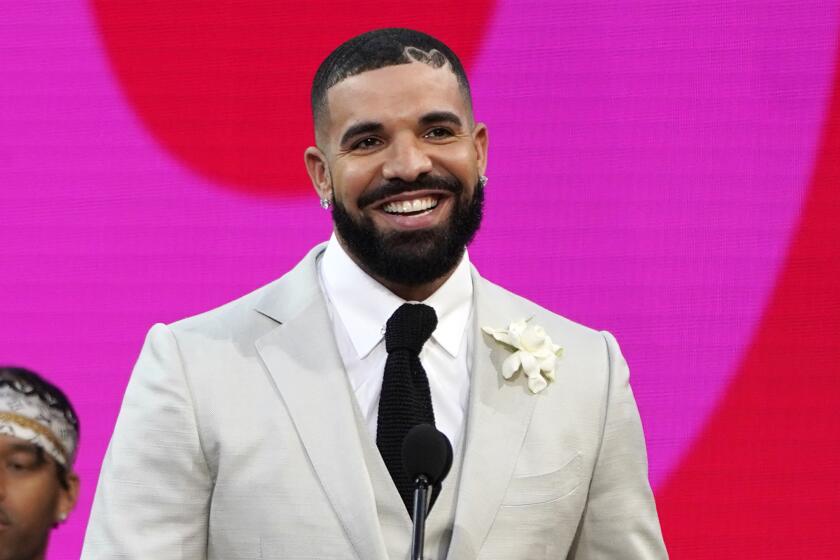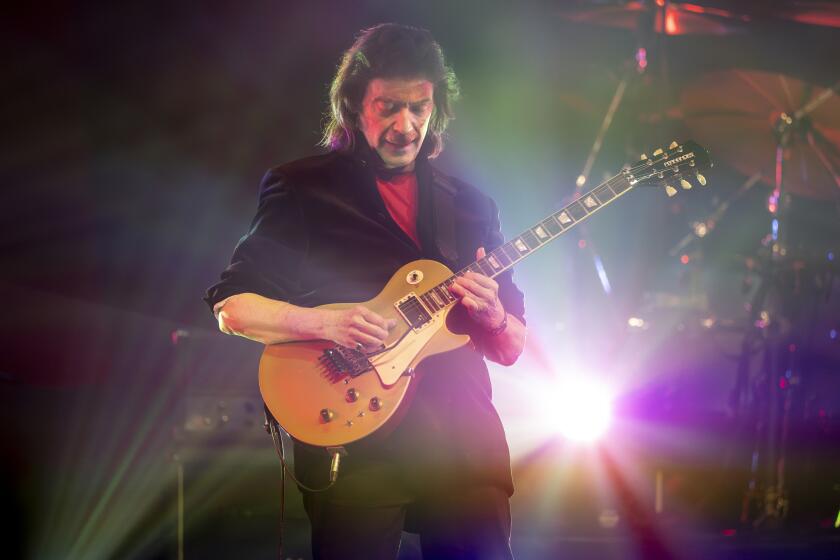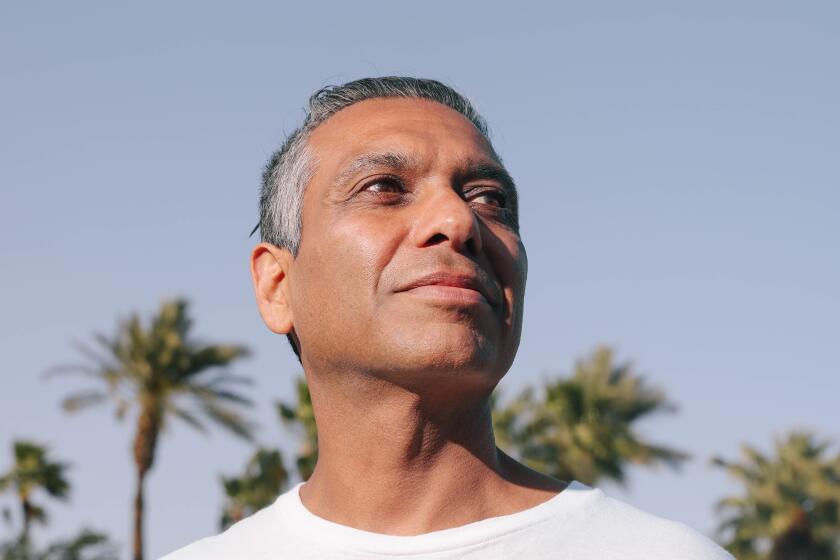New Orleans’ Jazz Fest turns 50, an American institution with humble roots
Cultural movers and shakers in New Orleans received one of the most fortuitous rejections ever when they floated a business proposal half a century ago to the man behind the celebrated Newport jazz and folk music festivals, George Wein.
“We had no jazz festival,” recalled Quint Davis, producer of the New Orleans Jazz & Heritage Festival since it began in 1970, “and so people asked George to come down and do a festival just like Newport.
“He refused,” Davis said. Wein also offered up a warning to those cultural mavens: “He said, ‘If you get somebody else to do that, you’ll have a festival that’s just like Newport. But New Orleans has something that no one else in the world can ever claim and that’s the birthright of jazz.’ So he had this idea for the Jazz & Heritage Festival.”
With that, Wein asked Davis and Allison Miner, another passionate young music fan, to help get the project off the ground. The goal: a gathering that would celebrate the music, as well as the food and cultural traditions, of the region widely considered to be the fertile crescent of several strains of American music. Jazz was at the top but was by no means the only element on that list, which included Cajun and zydeco, folk, blues, country, rock and gospel music.
At the inaugural edition of the festival, attendance was modest, to say the least: 350 people turned out, about half the number of musicians who performed. “Our first year, there was no stage,” said Davis. “There was no PA system. We had an upright piano in the grass.”
Fifty years later, the event locals refer to simply as “Jazz Fest” is revered by the community at large and among music aficionados of various stripe. It’s the granddaddy of destination music festivals, and nearly unique in being inextricably linked to the culture and community in which it takes place. The 50th anniversary edition will get underway Thursday, expanded this year from the usual seven days over two weekends to eight days.
Whereas Southern California’s taste-making Coachella Valley Music and Arts Festival hosted 165 acts across eight stages this year, Jazz Fest has lined up a staggering 688 acts that will populate a dozen performance spaces. Fully 600 of those, Davis said, are “local” acts from Louisiana, even though many are known around the world. The massive task of booking and organizing those acts is handled by Davis and his staff of about half a dozen.
At the time Wein drafted him, Davis was a college student with an abiding passion for music and many friends in the New Orleans music community. But neither he nor Miner, who died in 1995 at age 46, had much business expertise or experience organizing a festival.
“My career is a testament to what you can do if you don’t know any better,” Davis, 71, said over breakfast earlier this year during his annual visit to Los Angeles to attend the Grammy Awards. “We’re down there, you know, in the swamp, cut off from the outside world, doing gospel, Mardi Gras Indians, blues, whatever felt natural to us.
The humility of the early years helped establish it as a go-to event for residents of New Orleans and the surrounding parts of southwest Louisiana. It’s owned by the nonprofit New Orleans Jazz & Heritage Foundation, and yearly proceeds go to a variety of programs the foundation sponsors throughout the year in and around the city.
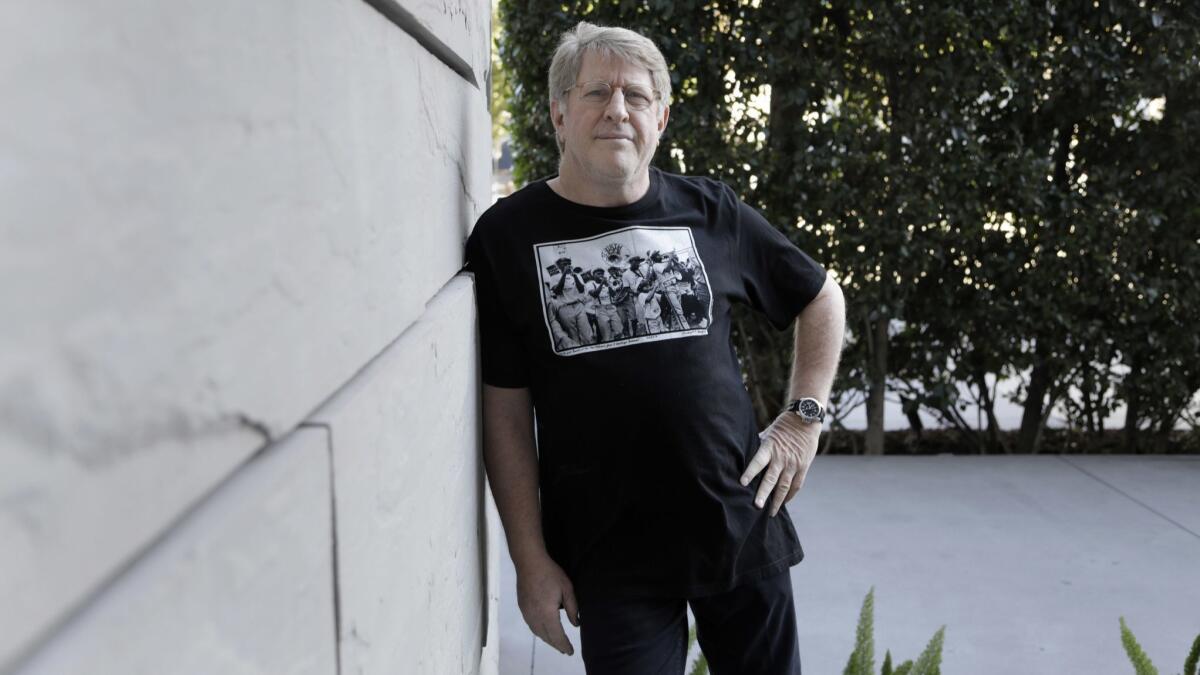
The site for the festival since the beginning, the New Orleans Fair Grounds and racetrack, “used to be very open, lots of grass spaces,” said Ann Allen Savoy, a singer, songwriter and author who lives in Eunice, La., and typically performs at Jazz Fest each year. “To walk around and not bump into people was magical.”
From such humble beginnings, Jazz Fest has evolved into one of the biggest tourist attractions and cultural celebrations in Louisiana, and well beyond. Last year’s total attendance was 450,000, according to a festival spokesman. (The audience breakdown is about 55% visitors to 45% locals.) A study commissioned after the 2018 edition put the total economic impact at just under $400 million — almost 10% ahead of the estimated $370 million economic impact in Minneapolis of the 2018 Super Bowl.
Billboard senior correspondent Dave Brooks noted how rare it was for a festival of that magnitude to continue being operated by a nonprofit entity.
“A festival with an average daily attendance of 50,000 to 60,000 is very capital intensive,” he said. “You can easily lose money.”
Consequently, the partnership Jazz Fest formed with promoter AEG Presents 15 years ago has been crucial to landing major headliners that can help with the bottom line. Davis credited AEG’s booking clout for allowing Jazz Fest to land the Rolling Stones as this year’s headliner, even though that coup fizzled because of singer Mick Jagger’s recent heart surgery.
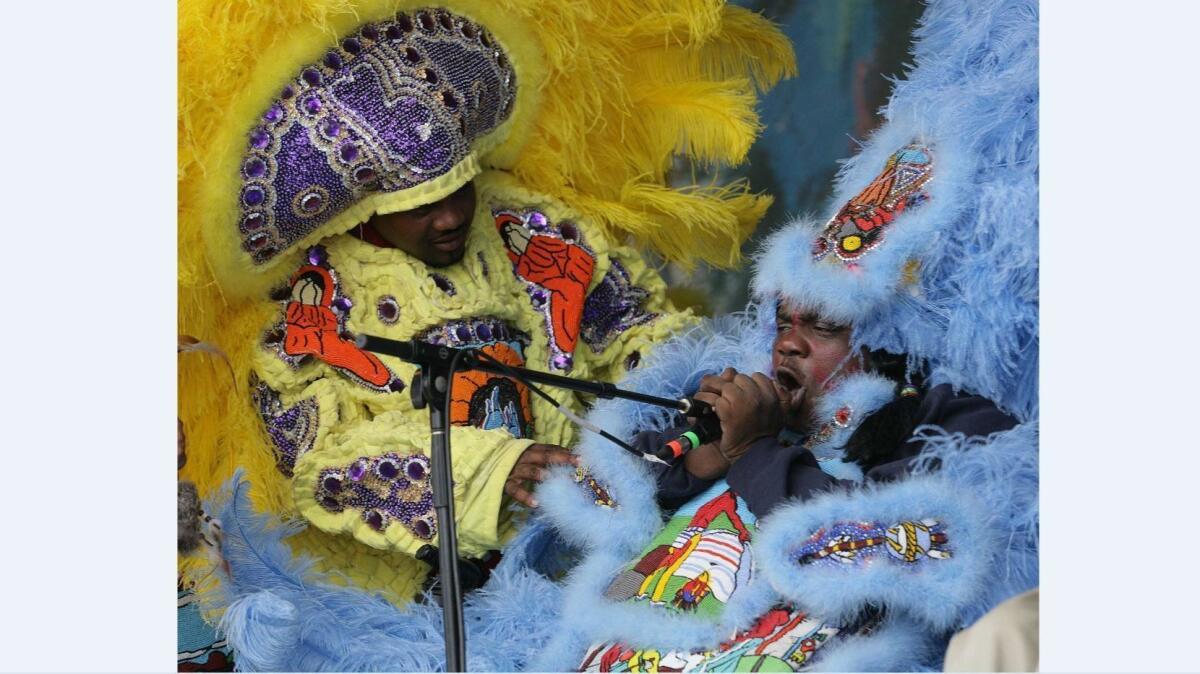
Veteran festival-goers and participants can cite any number of personal favorite moments over the decades. But one consistently mentioned by those who were there was the 2006 edition, which took place some seven months after Hurricane Katrina and the subsequent failure of levees devastated much of New Orleans and beyond. There was considerable debate over whether Jazz Fest could, or should, be held when so much of the region was still in tatters and tens of thousands of residents had lost their homes.
“Everybody felt that there were three things that tied New Orleans to the outside world,” Davis said. “They were Mardi Gras, Jazz Fest and the Saints football team.
“So when everything went away — and everything did go away, you know … it was the cultural traditions that started to reform the city.”
Davis lined up musicians who had deep affection for New Orleans and its musical heritage. Headliners that year included Bruce Springsteen, Paul Simon, Bob Dylan, Elvis Costello and the Dave Matthews Band.
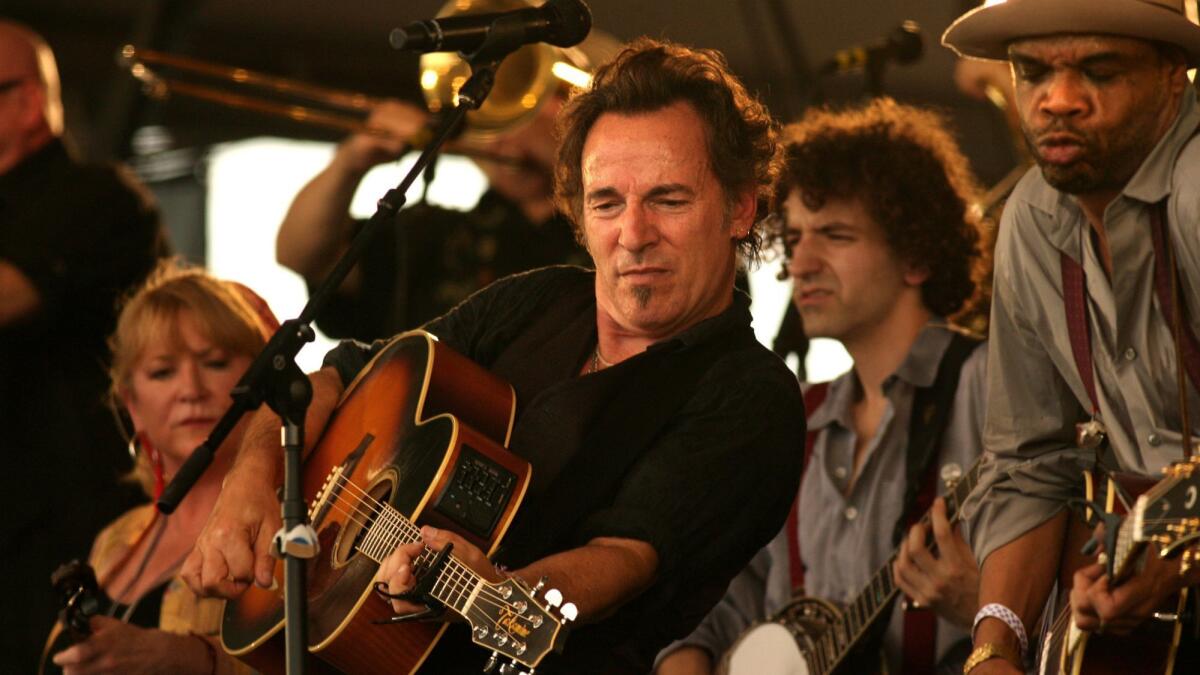
In his 2016 autobiography, “Born to Run,” Springsteen wrote: “There was one show in America that stood out as not only one of the finest but one of the most meaningful of my work life: New Orleans.”
For the occasion, he premiered his folk-rooted album “We Shall Overcome: The Seeger Sessions,” inspired by folk music hero Pete Seeger. Stepping away from his longtime cohorts in the E Street Band, Springsteen assembled a new large ensemble featuring trumpets, tuba, saxophone, fiddles, accordion and gospel singers.
Said Davis: “When Bruce did ‘My City of Ruins,’ there were a hundred thousand eyes crying at the same time.”
By comparison, the recent cancellation of the Stones as the special 50th anniversary headliner, followed quickly by the loss of Fleetwood Mac as the Stones’ replacement after singer Stevie Nicks came down with the flu, represents more of a hiccup than a disaster stacked next to Katrina.
Although the Stones booking generated national attention, Davis made a point to include a number of acts for Jazz Fest 50 that had a special connection to the event. Among those who have performed multiple times over the years and are returning this year are Al Green, Bonnie Raitt, Jimmy Buffett, Mavis Staples, Van Morrison, Santana, Tom Jones, Los Lobos, John Fogerty, John Prine and the Dave Matthews Band.
“I’ve done it maybe four or five times,” Green, 73, told The Times. “New Orleans is kinda like home. We get down there, we get to eat a lot of gumbo and alligator tail and crayfish — the big juicy ones.”
Raitt was the first non-local act Davis ever invited to Jazz Fest, back in 1977. Being asked to play the festival, she told The Times recently, “was the motherlode for me. New Orleans music just knocked me out. And the site itself — there’s something so fertile and historic about the racetrack. And I always eat a lot of salad the week before.”
The 50th Jazz Fest also spotlights musicians who define Louisiana music, including Dr. John, Irma Thomas, Rockin’ Dopsie, Mardi Gras Indian troupes, Marsalis family members, bandleader and pianist Jon Batiste, the Dirty Dozen and Rebirth brass bands, the Preservation Hall Jazz Band, trumpeters Terence Blanchard, Nicholas Payton, Wendell Brunious and Kermit Ruffins, and the Zion Harmonizers gospel group.
Additionally, the Smithsonian Folkways label has assembled a five-disc collection surveying the half-century of live performance in “Jazz Fest: The New Orleans Jazz & Heritage Festival Box Set,” which focuses on New Orleans and other Louisiana performers.
“It was important to have the artists here this year who were there early, and who are deeply woven into our history,” said Davis. “We all started at about the same age. These people have grown up with us.”
Follow @RandyLewis2 on Twitter.com
For Classic Rock coverage, join us on Facebook
More to Read
The biggest entertainment stories
Get our big stories about Hollywood, film, television, music, arts, culture and more right in your inbox as soon as they publish.
You may occasionally receive promotional content from the Los Angeles Times.
